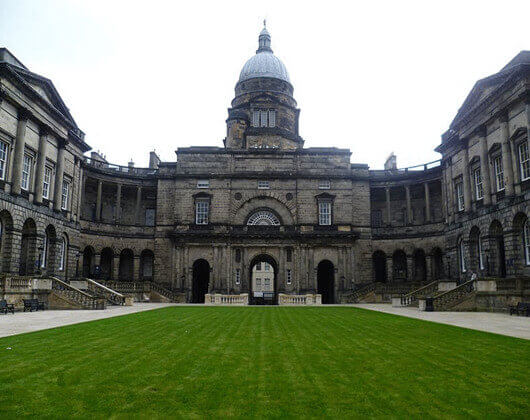Modules We're currently making some exciting changes to this course, including the introduction of optional modules to allow you to tailor the content more to your personal interests. The information on this page gives you an idea of the areas we expect the course to cover. This is not an exhaustive or fixed list as we are in the process of developing new topics to include. More information on the finalised modules will be available in early 2023. From May of the year of entry, formal programme regulations will be available in our Programme Regulations Finder. MA topics Global Journalism: Digital Journalism for a Global Society This year-long module introduces students to new forms and practices of journalism emerging in the digital era, such as online and multimedia journalism, data journalism and computational journalism. It helps students understand how the interactions of digital technologies and social change have influenced the status and state of journalism, the quality of journalism and what role journalism plays in society. Examples and cases from different countries will be discussed. This module also helps students to develop analytical skills and apply this knowledge to specific case studies and empirical data. 30 credits Global Journalism: Writing for the media This module introduces students to the culture and practice of writing for the media and to some of the practical reporting methods used by journalists. In so doing, it introduces students to some of the key skills required by journalists and media professionals. As this module is an introduction to how journalists prepare and write news stories for the media under stringent deadlines, students will develop basic skills in these areas. 15 credits Global Journalism: Research Portfolio You will prepare and execute a substantial piece of work, in the form of a research portfolio, including a reflection, a journal article and an outward-facing resource, that analyses an issue in journalism. You will learn and apply knowledge regarding the use, dissemination and application of research, its potential impact, and how to target audiences and how to reflect on the challenges faced by researchers. You will be able to make an informed choice about the nature of your project in relation to your own strengths, weaknesses and ambitions. 75 credits Global Journalism: Journalism in Britain This module encourages a critical approach to its subject matter and this means questions! Who owned the first million-selling daily newspaper in Britain? What was the impact of broadcast journalism on newspapers? Why has the tabloid genre become so pervasive? Where can we see comparisons and contrasts to the 'British' model? When did journalism emerge as a distinct form of communication? How have women been involved in the development of journalism? What role have news cartoons played within the quality and tabloid press? In order to understand issues and debates within the contemporary British news media, it is best to start with an understanding of how journalism has evolved within this particular national context. How did we get the news media that we have today and what does this mean for contemporary society? This is as important a question whether you are an overseas student, or a student from the UK who has never taken too much notice of the specifics of the news media. Students on this module will learn about the historical development of journalism and current debates concerning the news media in the UK including the evolution of the related field of Journalism Studies. 15 credits Global Journalism: Media freedom: European, UK and US perspectives The overall aim of this module is to develop an understanding of the international treaties and national laws safeguarding the exercise of freedom of expression by the media, the different interpretations of this freedom in Europe and the US, and the limitations to which it is subject. In particular, it aims to facilitate students in developing knowledge of topics including the protection of freedom of expression in the European Convention of Human Rights, the Human Rights Act and the First Amendment; the tensions between media freedom, hate speech and privacy; media freedom and political expression; the contrasting models of press freedom and broadcasting regulation; the debate on internet freedom or regulation. The module seeks to expose students to European, UK and US laws, as well as to other jurisdictions where comparative analysis is appropriate. 15 credits Global Journalism: Critical Incidents in International Journalism In this module students will explore and analyse international critical incidents (for example, in the UK, US, Asia and Africa) and the efforts to ensure high-quality journalism that follow them. Students will engage in the critical analysis of media reform history, theories and perspectives related to critical incidents in journalism. Additionally, students will have an opportunity to develop their own media reform project and/or participate in an existing one. 15 credits Global Journalism: Radio and NGO Communication in conflict-affected areas Non-governmental organisations (NGOs) and other such organisations are valuable information sources, mediators and actors in conflict-affected zones and use local media, particularly radio, to amplify their messages, programmes and advocacy. This module focuses on, and engages with, the public and political communication used, and sometimes misused, and even abused, by radio and NGOs, internationally and historically, during times of conflict and the challenges they encounter culturally, politically, economically, legally and institutionally. In this case, 'internationally' means from the perspective of the Global South. 15 credits
 日本
日本
 韩国
韩国
 英国
英国



























